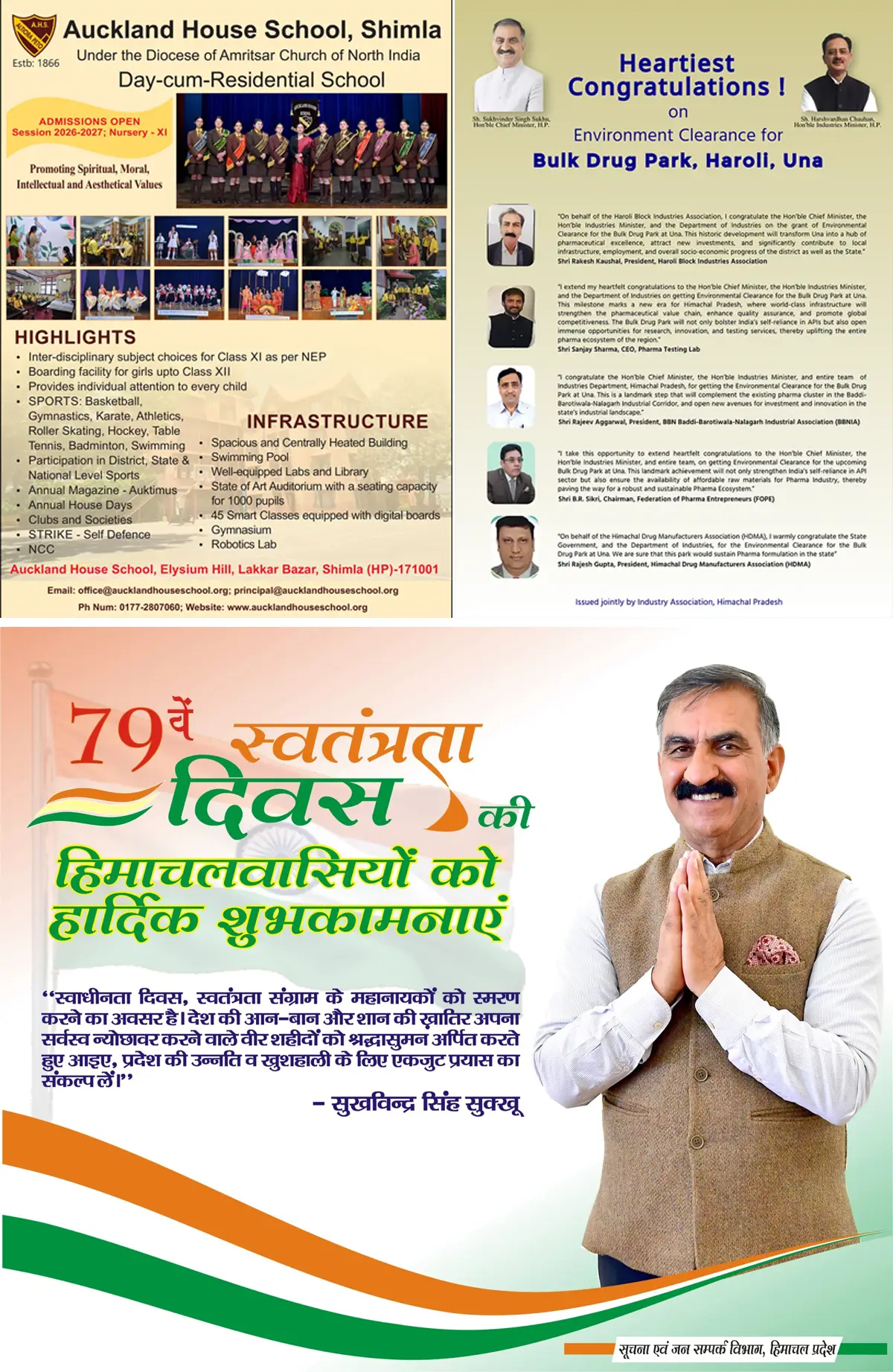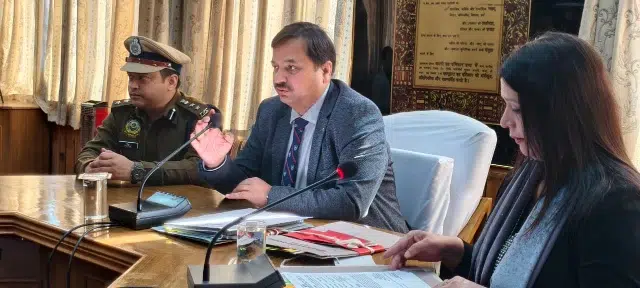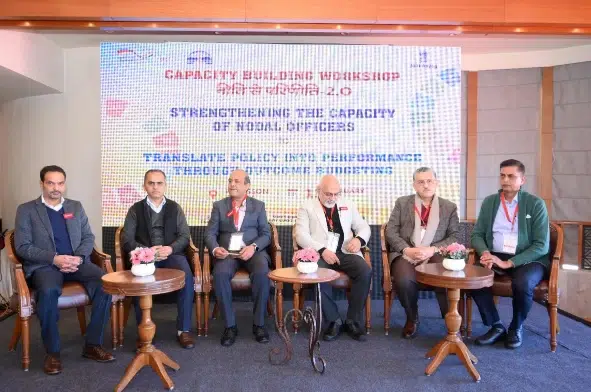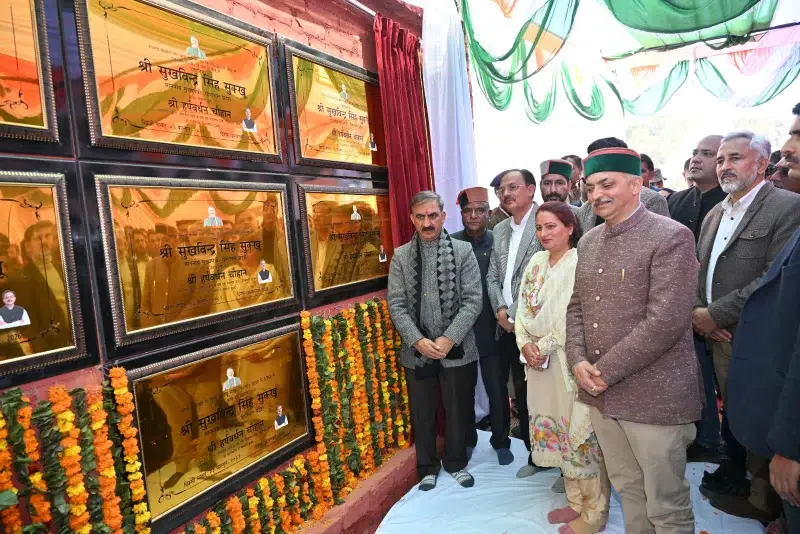Shimla’s Serenity Shattered: Protests Mount Over Unauthorized Mosque as Governments Delay Action
3 min read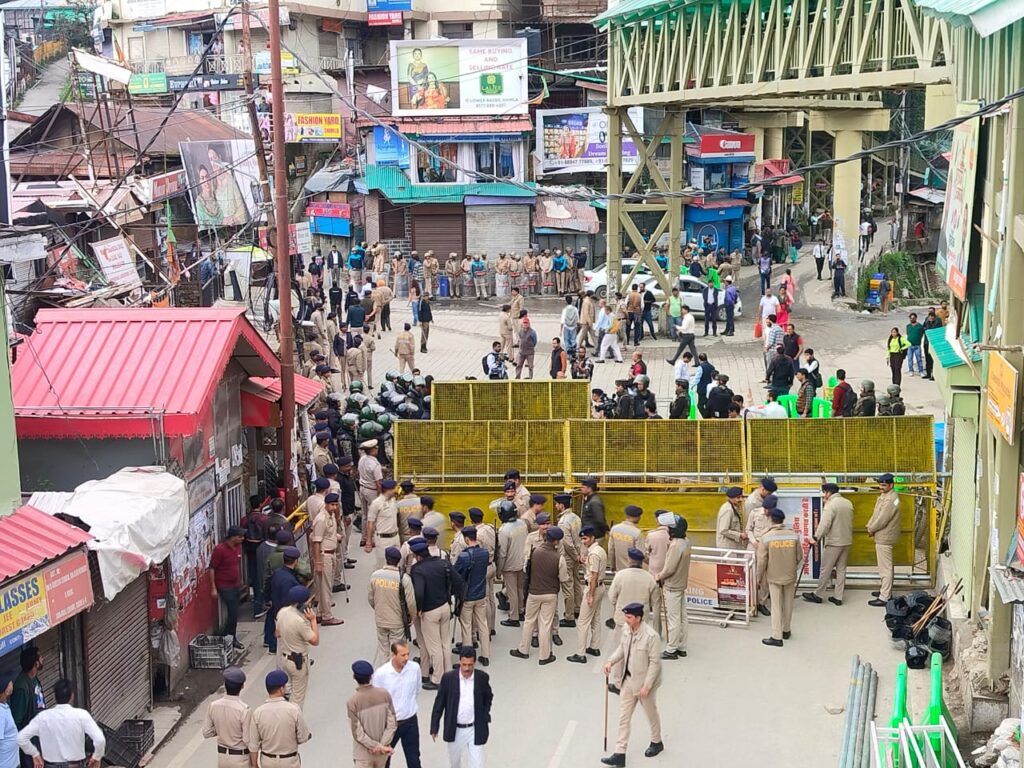
Shimla, Sept 11 Ritanjali Hastir
Shimla, often celebrated for its serenity and breathtaking beauty, has recently found itself in the spotlight for troubling reasons. Once known as the “Queen of Hills” and a symbol of peace and harmony, the town is now grappling with rising communal tensions over the construction of an allegedly unauthorized mosque in Sanjauli. What started as a local protest has escalated into a significant flashpoint, with residents and Hindu organizations coming together to demand the mosque’s demolition. They argue that it has illegally expanded into a five-story structure from its original, much smaller form.
Leading the protests are Congress Councillor Narendra Thakur and Hindu Jagran Manch leader Kamal Gautam, both vocal in their demands for immediate action. Gautam has even gone as far as to issue an ultimatum to the administration, threatening that if the mosque is not demolished within two days, Hindus from across Himachal Pradesh will take matters into their own hands.
हिन्दू जागरण मंच नेता कमल गौतम को पुलिस ने लिया हिरासत में , संजौली चौक से उठाया ,देखिए पूरा वीडीयो
The protest has become a symbol of growing frustration over the government’s inability to address illegal constructions, exacerbating communal tensions in a town once known for its tranquility.
This latest controversy comes on the heels of years of administrative paralysis regarding illegal structures in Shimla. Despite several governments—Virbhadra Singh’s Congress, Jairam Thakur’s BJP, and now Sukhvinder Singh Sukhu’s Congress-led administration—cycling through power, no definitive action has been taken. The matter has been tangled up in municipal courts since 2010, further delaying resolution. Local residents like Vivek Mohan wryly compare the situation to Lord Ram’s 14-year exile, with the illegal construction saga seeming to drag on endlessly.
Panchayati Raj Minister Anirudh Singh has openly acknowledged the illegality of the mosque’s construction, yet the government’s stance remains fractured. While Singh has voiced his support for the protestors’ concerns, local MLA Harish Janartha has condemned the demonstrations, pointing to the widening political complexities of the issue.
“By the time the structure is dealt with, Lord Ram will have gone on another vanvas,” jokes Vivek Mohan, a resident who has watched this drama unfold for years. “Even Lord Ram managed to return after 14 years, but these governments? They keep kicking the can so far down the road, it’s practically reached the next election cycle.”
The reason behind this epic procrastination? The illegal structure in question has religious significance, and as any politician worth their salt knows, tampering with religious sites can spark riots faster than you can say “vote bank.” So, rather than risk any communal unrest, governments prefer to tiptoe around the issue.
While Congress is often accused of protecting such constructions under the guise of maintaining peace, the BJP isn’t much better. Despite its tough-on-law-and-order rhetoric, the party seems to have given these structures a kind of royal treatment, with delays dressed up as “due process.”
For the average person, this isn’t just about religious structures or legal disputes; it’s about the daily struggle of living in a city where the rule of law feels optional. Frustration runs deep, as it seems that the government, courts, and administration are more focused on avoiding conflict than solving the actual problem. Protests and petitions are met with polite nods and further delays, leaving residents stuck in a limbo where both their voices and the law seem to be lost in the bureaucratic maze. The reality is, this isn’t just about governments protecting illegal structures or political parties securing votes. It’s about a system that has repeatedly failed its people, prioritizing political expediency over decisive action. And until that changes, it seems like the Sanjauli protest will continue, just like the never-ending cycle of court hearings and postponed actions.
What makes the situation even more absurd is that this isn’t about just one illegal structure. It’s about a broader issue of governance and accountability—or the complete lack thereof. For the people of Shimla, it’s not just a question of whether the structure will ever come down; it’s about whether the rule of law will ever get its act together. Protests come and go, petitions are filed, but the result is always the same: more delays, more excuses, and no action.
Tensions Escalate in Shimla: Water Cannons Deployed on Protesters Amid Ongoing Mosque Controversy


